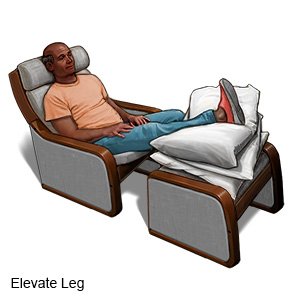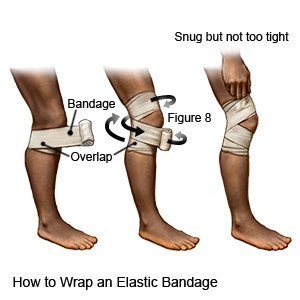Pain Management after Surgery
Medically reviewed by Drugs.com. Last updated on Apr 6, 2025.
What do I need to know about pain management after surgery?
Good control of your pain will help you heal from surgery and return to your normal activities. It will also help you do important activities such as walking and deep breathing. If your pain prevents you from doing these activities, you may be at risk for complications. Examples include a blood clot or pneumonia. Tell your healthcare provider if your pain is not controlled. You may need changes to your medicine or treatment plan.
Which medicines are used to manage pain?
- Acetaminophen decreases pain and fever. It is available without a doctor's order. Ask how much to take and how often to take it. Follow directions. Read the labels of all other medicines you are using to see if they also contain acetaminophen, or ask your doctor or pharmacist. Acetaminophen can cause liver damage if not taken correctly.
- NSAIDs , such as ibuprofen, help decrease swelling, pain, and fever. This medicine is available with or without a doctor's order. NSAIDs can cause stomach bleeding or kidney problems in certain people. If you take blood thinner medicine, always ask your healthcare provider if NSAIDs are safe for you. Always read the medicine label and follow directions.
- Prescription pain medicines such as opioids, or narcotics, are only used for short-term (acute) pain. Your healthcare provider will tell you how to take your specific prescription pain medicine safely. Your provider will tell you about common and serious side effects of the medicine and what to do if they happen. Some prescription pain medicines contain acetaminophen. Do not take other medicines that contain acetaminophen without talking to your provider.
- Anxiety medicine decreases anxiety. High levels of anxiety make pain harder to manage.
- Muscle relaxers help decrease pain by relaxing your muscles and preventing spasms.
What can I do to manage pain without medicine?
- Rest as often as needed. Rest helps your body heal. Sleep in a comfortable position. Examples include sleeping upright or on your side. Use pillows to support painful areas. Tell your provider if pain is keeping you from sleeping well.
- Apply heat or ice, if recommended. Your surgeon will tell you if this is recommended after the kind of surgery you had. Heat helps decrease pain and muscle spasms. Apply heat for 20 to 30 minutes every 2 hours for as directed. Ice helps prevent tissue damage and decreases swelling and pain. Apply ice for 15 to 20 minutes every hour or as directed. Use an ice pack, or put crushed ice in a plastic bag. Cover it with a towel before you apply it to the surgery area.
- Elevate the surgery area above the level of your heart, if possible. This will help decrease swelling and pain. Prop your painful area on pillows or blankets to keep it elevated comfortably.

- Apply compression with an elastic bandage or abdominal binder as directed. An elastic bandage may be used after surgery on your joint, such as your knee. An abdominal binder may be used for surgeries in your abdomen. Do not wrap the bandage or binder tightly. You should be able to put 2 fingers between the binder or bandage and your skin.

- Talk to your healthcare provider about your daily activities. Some activities may cause or worsen pain. Your provider can help you find ways to reduce pain. For example, you may need to change when you take your pain medicine so it is more effective during activities.
- Ask about assistive devices. For example, a splint, cane, crutches, or walker can remove pressure or provide support. Braces or orthotics help you stand or walk more easily.
- Ask your provider about other ways to manage pain. Examples include aromatherapy, music, and meditation.
When should I seek immediate care?
- You have severe pain.
When should I call my doctor?
- Your pain does not get better after take your pain medicine.
- You have new or worsening pain.
- You have questions or concerns about your condition or care.
Care Agreement
You have the right to help plan your care. Learn about your health condition and how it may be treated. Discuss treatment options with your healthcare providers to decide what care you want to receive. You always have the right to refuse treatment. The above information is an educational aid only. It is not intended as medical advice for individual conditions or treatments. Talk to your doctor, nurse or pharmacist before following any medical regimen to see if it is safe and effective for you.© Copyright Merative 2025 Information is for End User's use only and may not be sold, redistributed or otherwise used for commercial purposes.
Further information
Always consult your healthcare provider to ensure the information displayed on this page applies to your personal circumstances.
